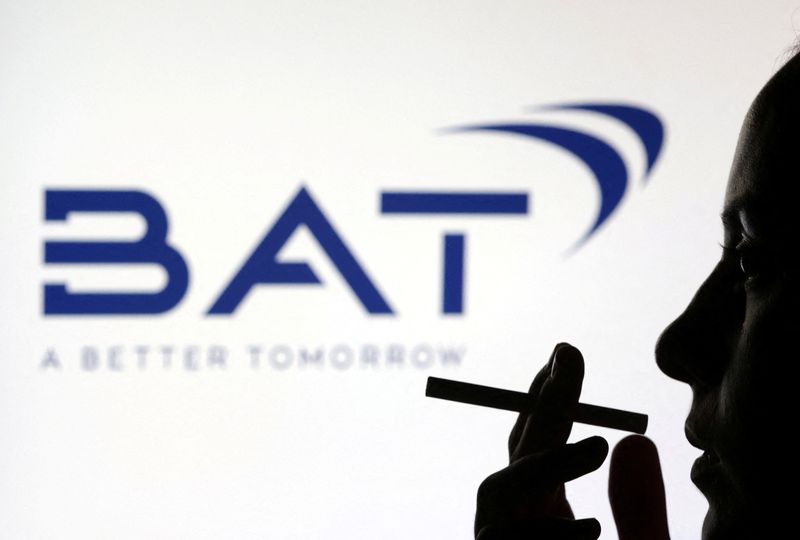By Emma Rumney
LONDON (Reuters) - British American Tobacco (NYSE:BTI) said it would take a hit of around $31.5 billion as it writes down the value of some U.S. cigarette brands, acknowledging on Wednesday that its traditional market has no long-term future.
BAT (LON:BATS) shares fell as much as 10.2% in London to their lowest since September 2010. U.S.-listed tobacco stocks were also impacted. Shares in Altria (NYSE:MO) were down 3.4% while Philip Morris (NYSE:PM) shares were down 2.1%.
BAT's move comes as ever-stricter regulation and growing awareness of health risks squeeze tobacco companies' traditional business, driving declines in cigarette volumes in some markets.
The writedown marks the first time a major global tobacco firm has written off the value of its traditional cigarettes business in a major market like the United States and emphasised the need for the industry to focus on alternatives.
The maker of Lucky Strike and Dunhill cigarettes pointed to economic challenges in the United States, where some inflation-weary consumers are downgrading to cheaper brands, and the rise of illicit disposable vapes.
BAT said these factors combined with the broader move away from smoking meant it would adjust the way some of its U.S. brands are treated on its balance sheet, shifting their value to a finite lifetime of 30 years.
This would result in a non-cash adjusting impairment charge of around 25 billion pounds ($31.50 billion), BAT said. Its Newport, Camel, Pall Mall and Natural American Spirit brands were affected, a spokesperson added.
Chief Executive Tadeu Marroco described the move as "accounting catching up with reality."
While he did not believe cigarettes would disappear in 30 years, he said it was no longer possible to justify an indefinite value for those brands equating to around $80 billion on BAT's balance sheet.
Anti-tobacco lobby groups welcomed the decline in cigarette sales in the United States but said the industry was continuing to spends billions of dollars marketing the products.
"No one should profit from death and disease," Erika Sward, National Assistant Vice President of Advocacy for the American Lung Association said in a statement.
BAT added that it would start amortising the remaining value of its U.S. combustibles brands in 2024, making it the first of the major cigarette players to acknowledge that its tobacco brands' value had an expiry date.
Like rivals, BAT has been investing heavily in smoking alternatives like vapes.
On Wednesday, it added a new ambition to generate 50% of its revenues from non-combustibles by 2035 and said it now expects its business from such "new categories" to break even in 2023, a year ahead of its current projection.
James Edwardes Jones, analyst at RBC Capital Markets, welcomed the ambition given the U.S. charge and a "grim" outlook for BAT.
"Goodness, that's a big number," he said of the charge, adding that it exemplifies the "perils of the industry" and sends less confident signals about the outlook for cigarettes.

BAT said full-year revenue growth would likely be at the lower end of its 3-5% range. It also expected low single-digit growth in revenue and adjusted profit from operations in 2024.
(This story has been corrected to show that BAT expects 50% of revenue from non-combustibles by 2035, not 2025, in paragraph 14 and bullet point)